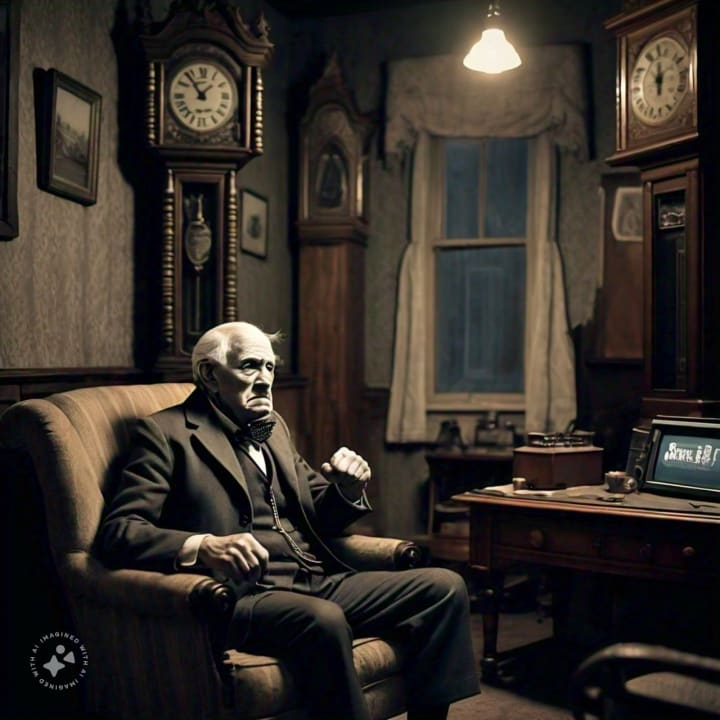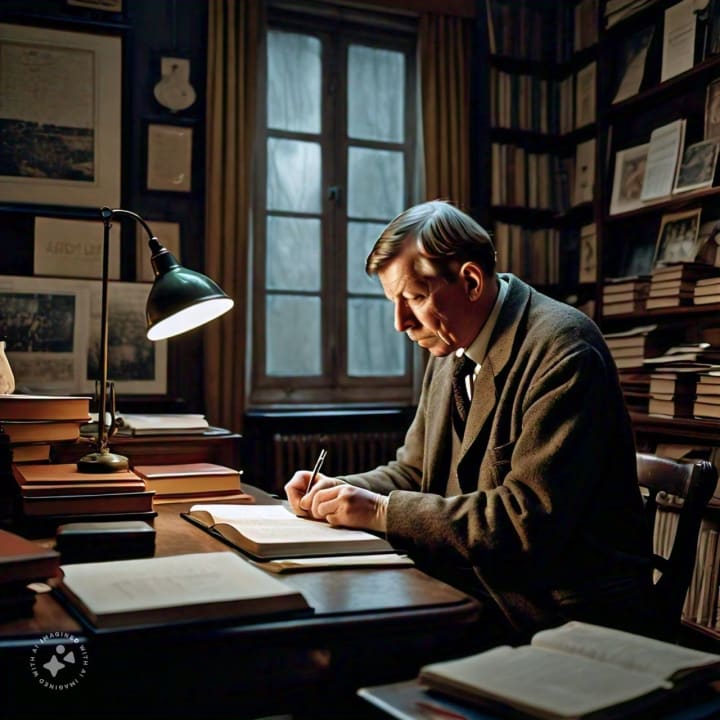Night Mail
This is a Night Mail Crossing the Border

Introduction

This is the Night Mail crossing the Border, Bringing the cheque and the postal order,
Letters for the rich, letters for the poor, The shop at the corner, the girl next door.
Pulling up Beattock, a steady climb; The gradient's against her, but she's on time.
Past cotton-grass and moorland boulder, Shovelling white steam over her shoulder,
Snorting noisily, she passes Silent miles of wind-bent grasses.
Birds turn their heads as she approaches, Stare from bushes at her blank-faced coaches.
Sheepdogs cannot turn her course; They slumber on with paws across.
In the farm she passes; no one wakes, But a jug in a bedroom gently shakes.

About the Poet
W.H. Auden was born in 1907.He was educated at Oxford and taught in gland and Scotland for sometime. He wrote poetry and won fame in political and cal circles. Among his famous volumes of verse are: Look Stranger (1936), Another me (1940), The Age of Anxiety (1948). Auden showed a deep interest in language and metaphor, satire and parody which are often dazzling and sometimes cruel. He is lively and provocative, skilled and ingenious.
Theme
The poet describes the journey of a coach that travels all night bringing mail which contains letters, postal orders, cheques for people who live in various parts of the land.
Sometimes the journey is a steep upward climb, sometimes it runs steadily on plains.
Whether the railway track is an upward ascent or is a sloping descent, the night mail is always on time and follows the time schedule. The grass land, cotton fields, moorland and the white clouds above, all pass
by quickly and swiftly. The birds stare at the approaching coach from their nests but the sheepdogs.
Wystan Hugh Auden was born in York, England, on February 21, 1907. He moved to Birmingham during childhood and was educated at Christ Church, Oxford. As a young man he was influenced by the poetry of Thomas Hardy and Robert Frost, as well as William Blake, Emily Dickinson, Gerard Manley Hopkins, and Old English verse. At Oxford, his precocity as a poet was immediately apparent, and he formed lifelong friendships with two fellow writers, Stephen Spender and Christopher Isherwood.
In 1928, Auden’s collection, Poems, was privately printed, but it wasn’t until 1930, when another collection titled Poems (though its contents were different) was published, that Auden was established as the leading voice of a new generation.
Ever since, Auden has been admired for his unsurpassed technical virtuosity and an ability to write poems in nearly every imaginable verse form; the incorporation in his work of popular culture, current events, and vernacular speech; and also for the vast range of his intellect, which drew easily from an extraordinary variety of literatures, art forms, social and political theories, and scientific and technical information. He had a remarkable wit, and often mimicked the writing styles of other poets such as Dickinson, W. B. Yeats, and Henry James. His poetry frequently recounts, literally or metaphorically, a journey or quest, and his travels provided rich material for his verse.
Auden visited Germany, Iceland, and China, served in the Spanish Civil War, and, in 1939, moved to the United States, where he met his lover, Chester Kallman, and became an American citizen. His own beliefs changed radically between his youthful career in England, when he was an ardent advocate of socialism and Freudian psychoanalysis, and his later phase in America, when his central preoccupation became Christianity and the theology of modern Protestant theologians. A prolific writer, Auden was also a noted playwright, librettist, editor, and essayist. Generally considered the greatest English poet of the twentieth century, his work has exerted a major influence on succeeding generations of poets on both sides of the Atlantic.
W. H. Auden served as a Chancellor of the Academy of American Poets from 1954 to 1973, and divided most of the second half of his life between residences in New York City and Austria. He died in Vienna on September 29, 1973.
About the Creator
Muhammad Ali Raza
I have enjoyed writing for most of my life, never professionally.
I wish to now share my stories with others, lets see where it goes.
Born and raised on the Pakistan Prairies, I currently reside on the Punjab.I call both places home.






Comments
There are no comments for this story
Be the first to respond and start the conversation.